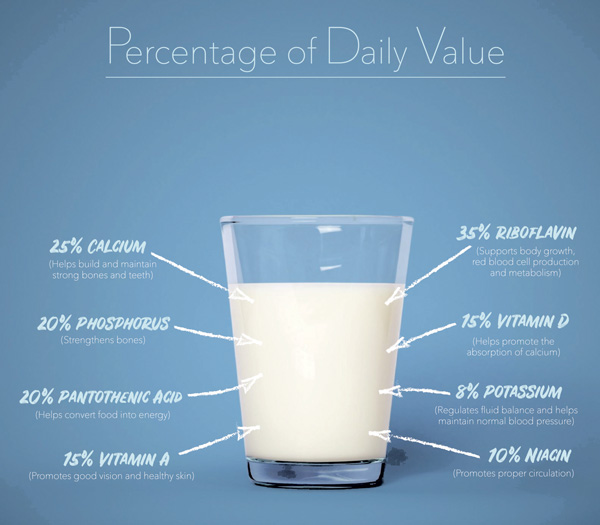Health Benefits of Whole Milk
The Importance of Whole Milk
Whole milk is a nutritious and delicious beverage that offers numerous health benefits. It is a rich source of essential nutrients, including vitamins, minerals, and proteins, which are vital for maintaining good health. In this article, we will explore the various health benefits of whole milk and why it should be a part of your daily diet.
Stronger Bones and Teeth
Whole milk is an excellent source of calcium, which is essential for building and maintaining strong bones and teeth. It also contains vitamin D, which aids in the absorption of calcium and further strengthens bone health. Regular consumption of whole milk can help prevent conditions like osteoporosis and tooth decay.
Improved Muscle Growth and Repair
Protein is crucial for muscle growth and repair, and whole milk is an excellent source of high-quality proteins. The proteins in whole milk contain all the essential amino acids needed for optimal muscle development. Including whole milk in your diet can support muscle growth, enhance recovery after exercise, and promote overall muscle health.
Enhanced Brain Function
Whole milk contains several nutrients that are beneficial for brain health. It is rich in B vitamins, including vitamin B12, which play a crucial role in maintaining proper brain function. These vitamins help in the production of neurotransmitters, which are essential for communication between brain cells. Consuming whole milk can contribute to improved cognitive function and memory.
Heart Health
Contrary to popular belief, whole milk can be a part of a heart-healthy diet. The saturated fats present in whole milk are necessary for the body and provide a source of energy. In moderation, these fats do not significantly contribute to heart disease. Additionally, whole milk contains omega-3 fatty acids, which have been shown to have a positive impact on heart health.
Weight Management
While whole milk is slightly higher in calories compared to skim or low-fat milk, it can still be a part of a balanced diet and weight management plan. The combination of proteins and fats in whole milk helps you feel fuller for longer, reducing the chances of overeating. Including whole milk in your diet can help you maintain a healthy weight.
Immune System Support
Whole milk contains essential vitamins and minerals that support a healthy immune system. It is a good source of vitamin A, which plays a vital role in maintaining the integrity of the skin and mucous membranes, acting as a barrier against pathogens. Additionally, whole milk contains zinc, which helps in the production of immune cells and supports their proper functioning.

Whole milk offers numerous health benefits, ranging from stronger bones and teeth to enhanced brain function and immune system support. It is a rich source of essential nutrients that are vital for overall health and well-being. By including whole milk in your daily diet, you can enjoy these benefits and contribute to a healthier lifestyle.
Frequently Asked Questions about the Health Benefits of Whole Milk
1. Is whole milk good for your health?
Yes, whole milk is considered a nutritious beverage that provides various health benefits.
2. What nutrients are present in whole milk?
Whole milk contains essential nutrients such as calcium, protein, vitamins A and D, and healthy fats.
3. Does whole milk help in building strong bones?
Yes, whole milk is an excellent source of calcium, which is essential for bone health and development.
4. Can whole milk support muscle growth?
Yes, the protein content in whole milk helps in muscle growth and repair.
5. Is whole milk beneficial for children?
Whole milk is recommended for children as it provides the necessary nutrients for their growth and development.
6. Does whole milk have any cardiovascular benefits?
Studies suggest that moderate consumption of whole milk may be associated with a lower risk of cardiovascular diseases.
7. Can whole milk help in weight management?
Whole milk contains healthy fats that can help you feel fuller for longer, which may aid in weight management.
8. Is whole milk suitable for individuals with lactose intolerance?
No, individuals with lactose intolerance should avoid whole milk as it contains lactose, a sugar that can cause digestive issues.
9. Does whole milk have any benefits for pregnant women?
Whole milk is a good source of nutrients like calcium and protein which are important during pregnancy.
10. Can whole milk be part of a balanced diet?
Yes, whole milk can be included as part of a balanced diet, especially when consumed in moderation.




